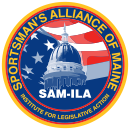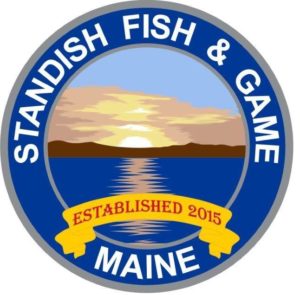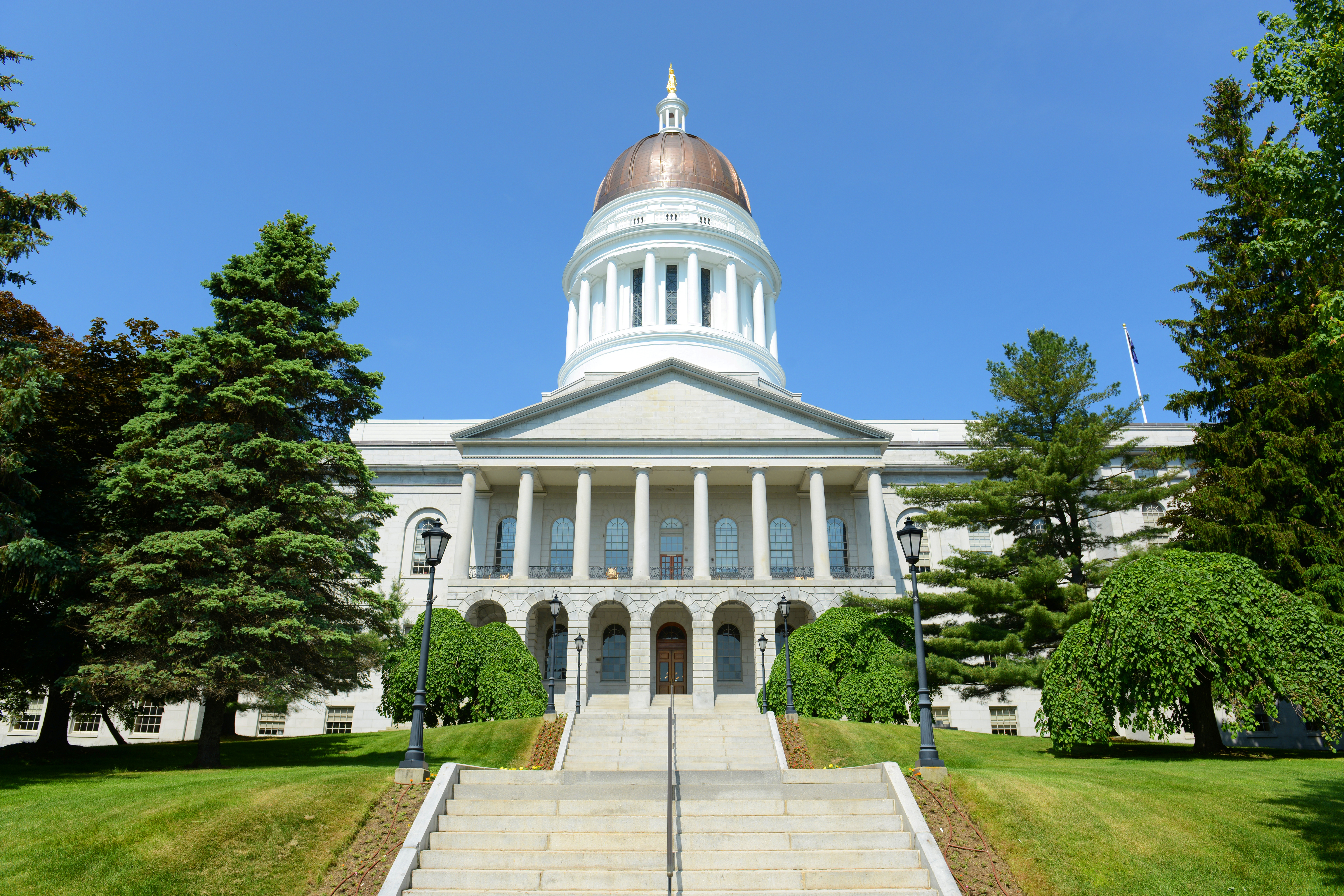As the Second Session nears, there are still several political issues left to resolve. There is a constitutional resolve, sponsored by Rep. Steve Wood, to establish the “right to hunt, fish, and trap” that was held over until this year.
This is a SAM bill, modeled after the 30 or so states that have adopted this protection.
LD 31, another SAM bill, sponsored by Rep. Espling, would require qualifying signatures for citizen initiatives (referendums) to come from both of Maine’s Congressional Districts. I wrote extensively about this bill in the last SAM News so I won’t rehash the same information, but this bill is essential to restore fairness to rural Maine voters.
Maine Democrats have blocked these two bills from receiving the needed two-thirds (2/3) vote to appear on the ballot for your approval. That is not a partisan statement, it is reality. Not a single Republican has voted against LD 31 in two legislative sessions, or the last three years.
The Right to Hunt legislation also has broad Republican support.
When these two bills are finally resolved, I will report roll calls, both supporters and opposition.
These two bills will be the foundation of our work in the next election.
Other SAM Legislation: Legislature Goes Too Far Banning Mineral Blocks
Last year we testified against LD 767, An Act to Prohibit the Feeding of Deer from August 15 to December 15. The bill is short and sweet, saying, “A person may not place salt or any other bait or food in a place to entice deer to that place, from June 1 to the start of an open hunting season on deer and, if all open hunting seasons on deer are closed before December 15 for that year, from the close of the last open hunting season on deer to December 15.”
LD 767 goes too far; after a long hard winter, deer and other wildlife like moose crave natural minerals like salt to replenish their reserves. In the spring it is common to deer and moose to frequent salt licks along the edges of roads, where plow trucks have sanded to melt ice and snow.
In addition, many people place mineral blocks in their woods to assist these wild animals. These blocks, placed away from the road, draw wildlife away from traffic, making our roads safer.
Banning mineral blocks in June and through the summer makes no sense. There are no hunting seasons, and we saw no proof the blocks spread disease. I have discussed this issue with our consulting deer biologist, Gerry Lavigne, and he agrees that this bill was a solution looking for a problem. The Senate Chair of the Inland Fisheries and Wildlife committee, Senator Cyrway, has agreed to introduce a bill to repeal LD 767 on our behalf.
No Hunting on Public Reserved Marked Hiking Trails
One of our SAM members brought to our attention a law and rule that exists, passed in the 1970s and ‘80s, that we will attempt to repeal and replace because it is outdated and makes no sense.
There are about 500,000 acres of Public Reserved lands owned by the people of Maine, and on those lands are 175 miles of marked hiking trails. Many of the trails are in very remote hard to reach areas of Maine, although some are in more populated areas in the southern part of the state as well.
Many sportsmen and women share these trails to get into prime hunting areas, but a surprise to many was a state law passed in the 1970s that says:
Title 12, Part 2, Chapter 220, subsection 1806, Part F. “Discharges any firearm, bow and arrow, weapon powered by carbon dioxide cartridges or other weapon within 300 feet of any picnic area, designated camping area, parking area, building, shelter or boat launching site, or in violation of park rules or in areas closed to hunting by rule, law or ordinance;”
The problem is not this section, it is with another department rule that was added to this section of law in the 1980s, which reads:
1.12 Firearms. “Except for persons holding a valid Maine concealed weapons permit, loaded firearms are not permitted in campsites, on marked hiking trails, or at boat launches and picnic sites, and should not be discharged within 300 feet of such areas.”
(From Chapter 51, Department of Agriculture Conservation and Forestry, Bureau of Parks and Public Lands rules, titled, “Use of Public Lands”.)
What this law and rules does is ban hunting on a 600-foot wide swath, (“ … within 300 feet on each side of all marked hiking trails … ) on Public Reserved Land. This is a total of 500,000 acres! It also creates an exception to the recently passed law that allows citizens (who are not prohibited from owning firearms) to carry a concealed firearm without a concealed firearm permit on these same trails.
This obscure law and rule causes many problems for sportsmen and women. I will get to that in a moment, but first, the biggest issue is whether SAM should continue promoting programs like Land for Maine’s Future (LMF), which claims to buy land to preserve traditional uses like hunting, fishing and farming, when we now know that large swaths of LMF land are designated no hunting, just because a hiking trail becomes “marked”, not because a ban on hunting is warranted.
In other words, one user group (non-consumptive hikers) can ban another traditional land user group (hunters) by simply “marking” existing paths and trails on public reserved land. We are not comfortable continuing to promote buying public land while this hunting ban exists.
We understand that some hiking trails experience high traffic use in populated areas, particularly in suburban areas. We also understand that hunting is not always appropriate in some areas.
Unfortunately, the way the law was written, there is no flexibility to allow hunting on “marked hunting trails” where appropriate; in addition, it appears the majority of hikers are not allowed to carry a firearm for self-protection, or to ward off unfriendly animals, like bears and moose. As a result, SAM has asked Senate President Mike Thibideau to introduce legislation on our behalf, to change the current statute and rule to allow some marked hiking trails, “determined by use and threat to public safety” to be designated “no hunting”, and open up the rest to allow hunting.
The SAM bill would also allow future, unbuilt marked hiking trails to be open to hunting. It allows that a trail can be designated “no-hunting”, but this must be done through public rule making, where we sportsmen would have a voice, and it must be based on a public safety standard.



